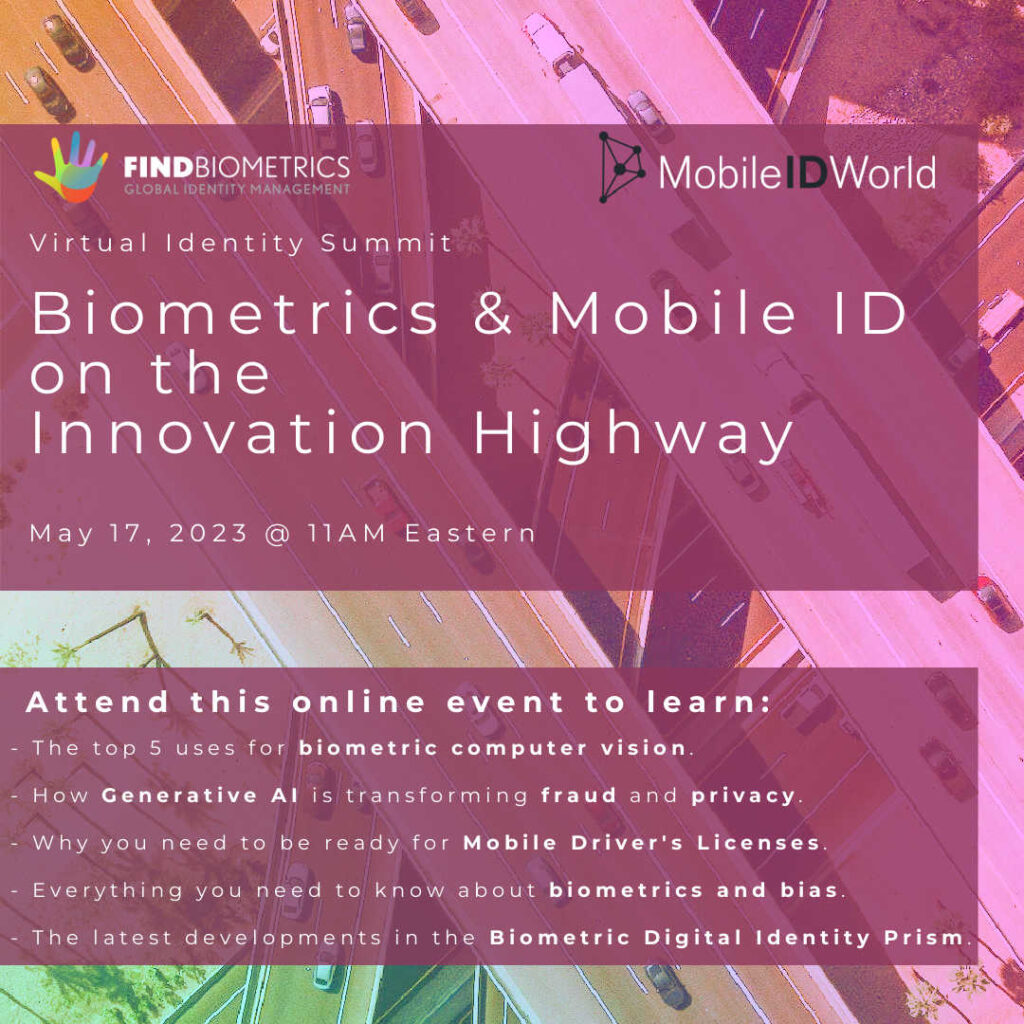Welcome to FindBiometrics’ digest of identity industry news. Here’s what you need to know about the world of digital identity and biometrics today:
CAT-2 Comes to CVG Airport
Transportation Security Administration officials are preparing to deploy Credential Authentication Technology 2.0 (CAT-2) kiosks at the Cincinnati/Northern Kentucky International Airport. The scanners use facial recognition to match travelers to their identity documents and against government watch lists, and are also capable of reading digital IDs such as mobile driver’s licenses. France-based IDEMIA has already provided the TSA with some CAT-2 terminals, and recently won a $128 million contract to continue doing so as the agency seeks to deploy them at more airports around the US. The Cincinnati/Northern Kentucky International Airport kiosks should be up and running by the end of the month, but will initially be used only to process members of the TSA PreCheck expedited screening program.
Toronto’s Pearson Airport Plans Biometric e-Gates
The Greater Toronto Airports Authority, which manages the airports of Canada’s most populous city, has announced plans for new measures to help improve passenger service and processing at the Toronto Pearson International Airport, including a collaboration with the Canadian Border Services Agency that will see the deployment of biometric e-gates for customs clearance. In recent years Pearson has been featured on multiple lists of the world’s worst airports in terms of congestion and a poor customer experience.
Indian State Disconnects 21,000 SIMs After Biometric Scan
Government authorities in the Indian states of Maharashtra and Goa have disconnected about 21,000 SIM cards after implementing a facial recognition system to scan mobile databases for duplicate accounts. The subscriber information, including face photos, was provided to the Department of Telecom by the Telecom Subscriber Providers.
Karnataka Authorities Pilot Biometric Voting
In the Indian state of Karnataka, the Election Commission will trial the use of facial recognition for voter identification in upcoming elections for the Legislative Assembly. The technology will be in place at a single polling booth. Voters who are interested in using it must submit their Elector’s Photo Identity Card number and mobile number through a special app, and will then be sent a one-time passcode. After entering it, they’ll be prompted to submit a selfie photo, which will be compared against the voter’s face scan at the polling booth. The biometric system will eliminate the need to present physical ID at the polling station.
Victoria to Trial Mobile ID
The Australian state of Victoria is following its compatriot New South Wales in exploring the potential of mobile ID technology. A new pilot in the city of Ballarat will begin next month, allowing interested residents to load a digital version of the driver’s license in the Service Victoria mobile app or in the soon-to-be-launched VicRoads app. The government’s key tech partner in the effort is Thales, and authorities say its system will enable police, businesses, and other government authorities to confirm a participant’s identity with a QR code scan.
White House Prioritizes Digital Identity Standards
The White House has named “Digital Identity Infrastructure and Distributed Ledger Technologies” as one of a handful of technological areas in which the government must prioritize the establishment of strong standards. As explained in the newly issued “United States Government National Standards Strategy for Critical and Emerging Technology”, the country’s leadership view standards development as “instrument” to the US’s global technological leadership. Digital ID and distributed ledger technology, it says, “increasingly affect a range of key economic sectors”. Other ‘Critical and Emerging Technologies’ to be prioritized include AI, biotechnologies, quantum IT, semiconductors, communications, and clean energy.
ID.me-Sterling Solution Gets IAL2 Certification From Kantara
ID.me and its partner Sterling Check Corp. have obtained IAL2 certification from the Kantara Initiative, an industry group focused on the promotion of standards and best practices for privacy and digital identity. IAL2 is Kantara’s “Trustmark for Identity Assurance Level 2” designation, which has now been applied to the joint identity verification solution that the companies provide to government agencies including the Internal Revenue Service. ID.me offers an online identity verification system based on facial recognition, while Sterling offers end users an in-person identity verification option.
Facial Recognition Heads to the Graveyard
The superintendent of a small Ohio town’s cemetery is planning to install cameras equipped with facial recognition and license plate reading technologies in an effort to fight against potential drug activity occurring on the grounds. Speaking at Newcomerstown’s Mayor’s Breakfast, cemetery superintendent Scott Powell said the village council has authorized the purchase of two such cameras.
–
May 8, 2023 – by Alex Perala









Follow Us